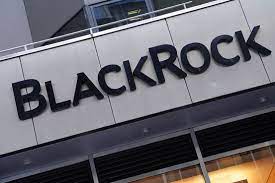Lightning Network and US General Election: Andrew Yang becomes the first presidential candidate to accept LN payments
This may be the first time that the Bitcoin expansion solution Lightning Network (LN) officially affected the US presidential election.
Democratic presidential candidate Andrew Yang got some support from bitcoiner. On Thursday, Yang launched a crypto-friendly super PAC (Political Action Committee), the Humanity Forward Fund (Humanity FWD). The payment processor of this PAC is OpenNode, which allows to accept payments from the Lightning Network Wallet.

OpenNode CEO Afnan Rahman said:
- Opinion: Even if BTC rises to $100,000, 79% of the coins cannot return to historical highs.
- Digital Currency in the Eyes of Economists – Trends: Creating a Future
- I want to use the blockchain to innovate my SWIFT, but I still can't resist the subversion of the blockchain.
“Super PAC obviously wants to receive more donations. At the same time, those who want to donate to Yang now have this opportunity. (Lightning Network) allows donors to use all their funds for actual donations instead of giving The miner."
According to Seth Cohen, founder of Humanity FWD, the fund only accepts bitcoin donations 21 days before its establishment. The legal currency donation channel will then be gradually opened. He said that as for the PAC to hold bitcoin or convert to legal currency, the organization has not yet decided.
When talking about the challenge of managing bitcoin donations, Cohen said: "Potential profit or loss will bring additional regulatory requirements." That is, this will require the PAC to record the fluctuations in bitcoin prices for each donation.
Even so, Cohen said, the 1% transaction processing fee charged by OpenNode is much lower than that of the credit card payment provider, which charges the super PAC four times as much as the former.
Although this is not the first political activity in the United States to accept bitcoin donations – states such as California and South Carolina have even banned direct donation of cryptocurrencies to candidates – the 2020 election may have pioneered the first bitcoin-centric super PAC And only supports a specific candidate. (Some political action committees, such as the Student Debt Reform Political Action Committee, also accept bitcoin.)
In addition, according to the Center for Public Integrity, nine federal candidates, political parties and super PAC received nearly $570,000 in cryptocurrency contributions during the 2017-2018 election cycle. Rahman said his company is currently conducting cross-party negotiations with "other" political action committees to discuss support for bitcoin donations before the 2020 election.
In contrast, Yang is the most supported cryptocurrency among the many candidates. He even listed an official commitment on the campaign website to promote cryptocurrency industry legislation to make it clearer. He also delivered a speech at this year's New York Consensus Conference.
Cohen said:
"People seem to be interested in Andrew's forward-looking policies, especially his views on Bitcoin. We hope to raise enough funds to make a big impact on this election."
We will continue to update Blocking; if you have any questions or suggestions, please contact us!
Was this article helpful?
93 out of 132 found this helpful
Related articles
- God turns! The Belgian Debo hits the face of CSW and is exposed to the court.
- Horizontal resolution of the deposit certificate panorama: Will the deposit certificate become a large-scale application scenario for the blockchain?
- Even if it is a bull market, it will not save the competitive currency market.
- Accept Bitcoin to buy a ticket, open an exchange, Norwegian Airlines CEO loves cryptocurrency
- Getting started with blockchain | E-cash is convenient? Maybe you still don't know the legal digital currency.
- IRISnet gallops: we have to cross not just the blockchain
- Market Analysis: EOS rose, paying attention to short-term opportunities in mainstream currencies





